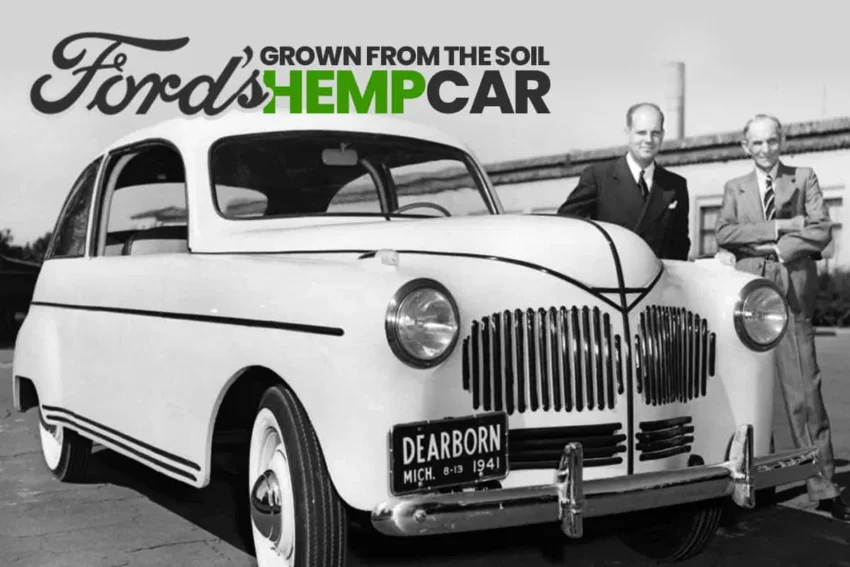In the annals of industrial history, Henry Ford is renowned not only for revolutionizing the automobile industry with the assembly line but also for his visionary ideas about sustainability and American agriculture. Ford grew up on a farm in rural Michigan, and his childhood inspired his fascination with combining farming with industry. One of his most intriguing projects was the concept of “growing” a car — an automobile whose frame was made from hemp and powered by hemp ethanol. Here’s how this innovative idea could have had profound implications for American agriculture and manufacturing.
Henry Ford’s Hemp Car
Henry Ford was a proponent of using agricultural products in manufacturing, seeing them as both renewable and beneficial to the American economy. In the 1940s, Ford developed a prototype car made from plastic derived from agricultural residues, including hemp. This vehicle was lightweight, strong, and theoretically capable of being grown and manufactured in America.
The body of Ford’s experimental car was made from a plastic composed of 70% cellulose fibers from hemp, along with other plant materials like wheat straw and sisal. This blend resulted in a material that was not only durable but also much lighter than steel, potentially improving fuel efficiency.
Ford also envisioned cars running on ethanol derived from hemp. Hemp has a high yield of biomass per acre, making it an efficient crop for biofuel production. Ethanol from hemp could be a cleaner, renewable alternative to gasoline, reducing dependency on oil imports.
Potential Impact on American Agriculture
Ford’s vision could have been a game-changer for revitalizing American agriculture:
Sustainable Agriculture: By integrating hemp into car manufacturing, there would be a significant increase in demand for hemp crops, providing farmers with new revenue streams. This could lead to a resurgence in rural economies where traditional crops might not be as profitable.
Reduced Dependency on Foreign Materials: With both the car’s body and fuel potentially sourced from American farms, the country could reduce its reliance on foreign materials and petroleum. This would strengthen national security through self-sufficiency in key industries.
Environmental Benefits: Hemp is known for its soil regeneration capabilities, requiring little in the way of pesticides or fertilizers. Its growth could lead to improved soil health across agricultural lands, supporting more sustainable farming practices.
Job Creation: The cultivation, processing, and manufacturing associated with hemp-based materials and fuels would create jobs in various sectors, from farming to industrial manufacturing, potentially revitalizing small towns and rural areas.
Innovation in Manufacturing: Ford’s concept would push for advancements in biocomposite materials, potentially leading to innovations in other industries like construction, packaging, and textiles.
Challenges and Modern Considerations
While Henry Ford’s idea was ahead of its time, several challenges would need addressing:
Legal and Regulatory Hurdles: Hemp was largely demonized and made illegal in the U.S. during Ford’s era, only recently being re-legalized for industrial use. Regulatory frameworks would need to evolve to support such an industry.
Scalability and Efficiency: Turning hemp into a viable material for car manufacturing on a large scale would require significant technological advancements and investment.
Market Acceptance: Consumers and industry would need to shift their perceptions of what materials are acceptable for car construction and fuel.
Conclusion
Henry Ford’s idea of growing cars in America was not just about innovation in manufacturing but also about a vision where agriculture and industry could symbiotically support each other. In today’s context, with growing concerns over climate change, sustainability, and economic resilience, revisiting Ford’s hemp car could offer a blueprint for a new agricultural-industrial revolution. By focusing on home-grown materials and biofuels, America could lead in sustainability while bolstering its agricultural sector, proving that sometimes, the most forward-thinking ideas are those that root deeply into the land itself.


